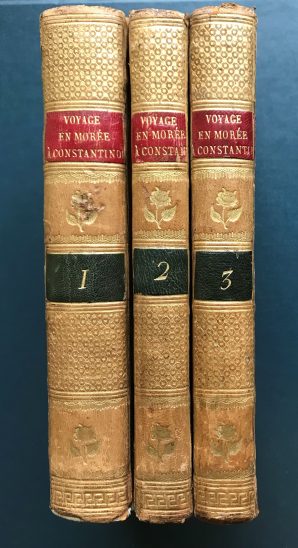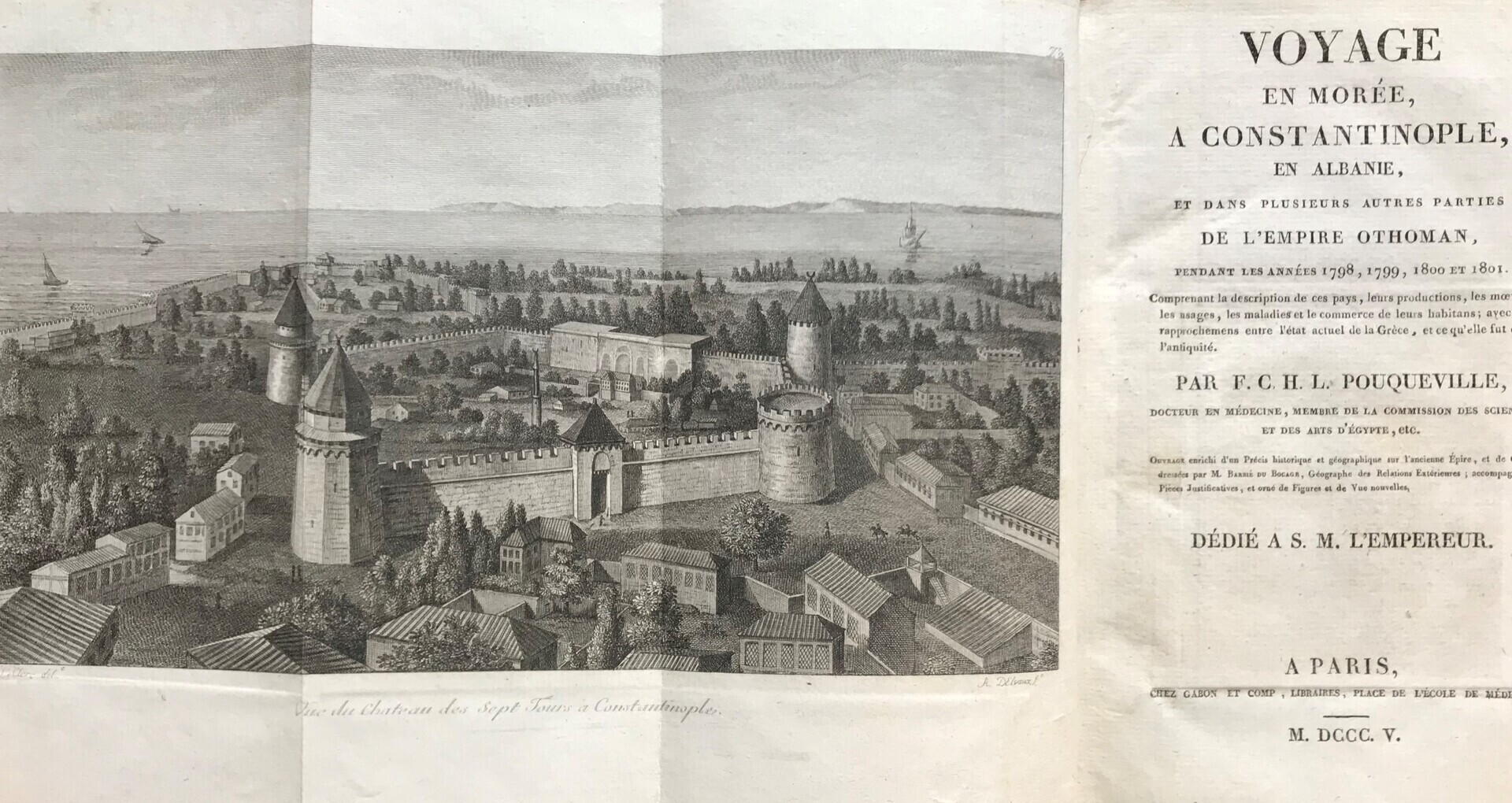Voyage en Morée, à Constantinople, en Albanie et dans plusieurs autres parties de l’empire Othoman pendant les années 1798, 1799, 1800 et 1801…… THREE VOLUMES.
Pouqueville, Francois-Charles-Hugues-Laurent 1770-1838.
Synopsis
“First edition dedicated to Napoleon. A German edition appeared also in 1805. A Dutch edition appeared at the Hague in 1808 in thee volumes. A two volumes edition appeared at Vienna in 1807, and an Italian edition at Milan in four volumes with coloured plates in 1816. An English edition abridged, was printed in Sir Richard Phillips’ “collection of Voyages” 1806, before the translation of Ann Plumptre which appeared in 4to with different illustrations from those in other editions.
This work is the first and probably the best of Pouqueville’s books on Greece. Pouqueville had joined the French expedition to Egypt as a medical man attached to the scientific commission. On his return to Italy in 1798 he was captured by privateers who landed him at Navarino. He was imprisoned at Tripoli for ten months and later was taken to Constantinople and confined to the prison of Seven Towers for two years. Although officially a prisoner of war he was able to move about during his stay in Tripoli; he studied modern Greeks, was able to make notes of his observations. He returned to France in 1801, produced his medical thesis on the plague, and wrote up this account of his experiences in the Levant. The book attracted a good deal of attention: Possibly the dedication to Napoleon helped. In 1805, as a result. Pouqueville was appointed French agent at Ionnina. The work contains a great deal of information on popular customs, superstitions, songs, etc. “Whether original or not, Pouqueville gives us the best picture of the Romaioi, as he calls them”. (….Malakis, pp. 53-3 ).
Bibliographic references: Armao, p. 255; Atabey, 963; Blackmer, 1344; Legrand, Bibliographie Albanaise, 126; Weber I, 5.








